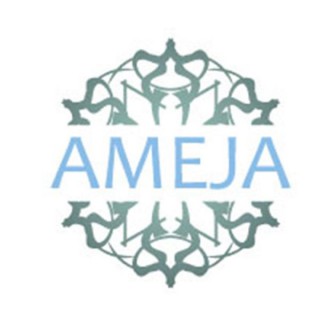
AMEJA
Follow AMEJAThe Arab and Middle Eastern Journalists Association (AMEJA) is a non-profit organization for media professionals of Arab and Middle Eastern descent.
Archive
- May 2, 2011 LATEST EPISODE
- infrequent NEW EPISODES
- 45m AVG DURATION
- 8 EPISODES
Latest episodes from AMEJA

The Arab and Middle Eastern Journalists Association (AMEJA), presents an exclusive conversation with Nahal Toosi, AP reporter currently in Abbottabad, Pakistan. Join AMEJA for a webcast conversation and Q&ANahal Toosi-- Associated Press Correspondent based Islamabad and currently in Abbottabad, Pakistan. http://twitter.com/nahaltoosi Moderated by:Mahdis Keshavarz, Principal, The Make Agency www.twitter.com/themakeagency www.themakeagency.com

After over two weeks, the audacious people's revolt against the Mubarak regime in Egypt seemed to be coming to a head. Despite a combination of brutal measures against demonstrators, proposed concessions by the government toward them, rumors, and confusing reports the protests continued in ebbs and flows. At moments, it seemed the opposition would break. Yet, the movement against the regime regained momentum, inspired by the human stories told on non-state media, and drawing new actions by labor unions and other syndicates around the country. Just before this announcement, Hosni Mubarak was expected to announce his departure from office. Yet, in an unexpected twist, Mubarak stubbornly refused to go. Undoubtedly, the Egyptian people will react strongly to this obstinence. Regardless of what happens, the implications of these events for Egypt, the Middle East, and the rest of the world are profound. As part of its mission to provide intimate understanding of issues in the Middle East and North Africa, AMEJA is pleased to hold its second program on the revolt in Egypt. Joining us in conversation will be reporters on the ground in Egypt with analysis by Egypt specialist Professor Mona El-Ghobashy of Barnard College, New York. Please listen to this important broadcast.

Egypt has seen its share of popular protests over the past few decades. Yet, only in the past week have demonstrations enveloped the country, threatening the basis of Hosni Mubarak's thirty year rule. The implications for regime change in Egypt are profound, both internally, regionally, and internationally. In order to foster an intimate understanding of what is happening on the ground, we have pleased to have a conversation with AMEJA members reporting from Egypt. Please join us.

After decades of rule under Ben Ali, Tunisians have ousted their government. Join experts and AMEJA members in Tunisia for a in-depth analysis of events and a look ahead for Tunisia and the Arab world. Joining us will be Anthony Shadid and Kareem Fahim of The New York Times, Dr. Taoufiq Ben Amor of Columbia University, and others in Tunisia and around the world.

The post-election turmoil in Iran has hardened the determination of various sides. Responding to massive opposition protests, the regime and its supporters have cracked down hard, with arrests, beatings, and killings. Despite admissions of some irregularities, Iran’s Guardian Council, and its supreme leader Ayatollah Khameini have tried to close the door to dissent, claiming in part that protests against the election results were being guided from outside the country. And, they have particularly targeted journalists with implicit threats to their safety. As a result, several foreign journalists doing important work have left the country in recent days, monitoring developments from abroad. To examine what has happened on the ground, what is going on now, and how their distance might affect reporting, AMEJA has assembled a panel of journalists who left Iran in the last few days.

AFTER THE VOTE: THE GROUND SHIFTS IN IRANSponsored by the Arab and Middle Eastern Journalist Association (AMEJA)June 19, 2009 -- In the wake of last week's election, events in Iran are moving quickly: allegations of voting fraud, massive protests and security crackdowns, emerging divisions within Iran's political class. In order to understand what's happening on the ground, AMEJA has assembled a panel of journalists covering the unrest from inside Iran and abroad. The conference call is part of an ongoing effort by the Arab and Middle Eastern Journalists Association (AMEJA) to connect journalists in the U.S. with reporters and experts in the Middle East.The Arab and Middle Eastern Journalists Association (AMEJA) is a non-profit organization for media professionals of Arab and Middle Eastern descent who work in the US or at US news organizations abroad. Membership is free and open to qualified individuals.:http://ameja.org/join.aspWHO:Nahid Siamdoust, Time magazineKouross Esmaeli, Filmmaker and journalistDr. Muhammad Sahimi, Tehran BureauMahdis Keshavarz, The Make Agency (Moderator)

After the supposed ceasfire in Gaza, reporters discuss the situation on the ground and the aftermath of the Israeli offensive.

Eighteen days after starting its military offensive into Gaza, Israel continues to bar most international journalists from entering the territory.Without access, journalists are unable to fully report the stories of devastation in Gaza. To alleviate this problem, AMEJA has been helping journalists and media outlets make contact with sources in Gaza and the region since the start of the war.Please join us as our panelists discuss the situation on the ground from different perspectives, one on the ground in Gaza, one from Jerusalem, another offering a broader regional perspective, and the third, a personal account of the situation








